At UN, China and Russia say US fueling tensions over North Korea
China and Russia say the United States is fueling tensions over North Korea, as Pyongyang has recently increased its missile tests.
Last month, China, the North’s closest ally, and Russia, whose relations with the West have sharply deteriorated over its military operation in Ukraine, vetoed a US-led push at the UN to toughen sanctions on North Korea over its renewed ballistic missile launches.
They said at the time that they would have preferred a non-binding statement instead of a fresh resolution against Pyongyang.
Veto-wielding China and Russia are opposed to further sanctions on the North and emphasize dialog is the only possible way to defuse tensions on the Korean Peninsula.
During a landmark UN General Assembly session on Wednesday, Beijing and Moscow again took aim at Washington, denouncing it for triggering tensions on the sensitive region.
The session was held for Beijing and Moscow to explain their reasons for their veto decisions against the US draft resolution at the UN Security Council last month that would have imposed new sanctions on North Korea.
Tension on the Korean Peninsula has “developed to what it is today, primarily due to the flip flop of US policies,” said China’s UN Ambassador Zhang Jun, as he hit out at Washington's approach toward Pyongyang.
He then made a plea for easing sanctions against North Korea.
“There are many things that the US can do, such as easing sanctions on the DPRK (North Korea) in certain areas, and ending joint military exercises (with South Korea). The key is to take actions, not just talk about its readiness for dialogue with no preconditions,” Zhang further said.
Russia’s Deputy UN Ambassador Anna Evstigneeva also called for the removal of the sanctions, saying North Korea needs more humanitarian aid and the West should stop blaming Pyongyang for tensions.
North Korea, which has been under rounds of crushing UN sanctions since 2006 over its nuclear and ballistic missile programs, has ramped up its missile launches this year, conducting well over a dozen weapons tests, including of an intercontinental ballistic missile (IBM) at full range for the first time since 2017, and eight short range ballistic missiles toward the sea off its east coast earlier this weeks.
Despite UN claims that the imposed sanctions would not affect the delivery of desperately-needed humanitarian aid to North Korea, relief organizations say that strict trade and banking measures have hindered the flow of such vital supplies.
Washington, however, insists that the current sanctions and proposals to add more are in direct response to North Korea’s actions.
“We seek a dialogue with Pyongyang without preconditions. We have passed this message on through private channels as well, including high level personal messages from senior US officials to senior DPRK officials,” said deputy ambassador Jeffrey DeLaurentis, who was speaking for the UN at the session, using an acronym for North Korea.
He also questioned whether China and Russia had elevated their “no limits” strategic partnership above global security by vetoing more UN sanctions on North Korea, referring to what Beijing and Moscow declared as a "no limits" partnership back in February.
“We hope these vetoes are not a reflection of that partnership,” DeLaurentis said, criticizing China and Russia for their use of veto.
“Their explanations for exercising the veto were insufficient, not credible and not convincing. The vetoes were not deployed to serve our collective safety and security,” he further said.
During a right of reply in the General Assembly later on Wednesday, Chinese diplomat Wu Jianjian firmly responded that China categorically rejected “presumptuous comments and accusations against China's voting position.”
“Continuing to increase the sanctions against DPRK (North Korea) would only make the likelihood of political solution even more remote,” he added, further justifying Beijing’s move in vetoing the US proposed sanctions.
Former US President Donald Trump attempted to court Pyongyang. But even though he met with North Korean leader Kim Jong-un three times, he refused to relieve any of the sanctions in return for the several steps taken by Pyongyang toward denuclearization. That hampered further diplomacy between Pyongyang and Washington and prompted Kim to announce an end to a moratorium on the country’s missile tests.
Pyongyang has repeatedly stressed that its nuclear and missile programs are of defensive nature. The North’s ambassador, Kim Song, also justified his country's military tests by emphasizing that articles of the UN Charter “clearly stipulate that every state has inherent rights of individual or collective self defense.”
The Wednesday session was the first at which permanent members of the UNSC had to explain their use of the veto, a step required under a resolution adopted by the 193-member General Assembly on April 26.
Since the first veto ever used - by the Soviet Union in 1946 - Russia has used it 144 times, far ahead of the US at 86 times. The United Kingdom has used its veto 30 times, China 19 times and France 18.
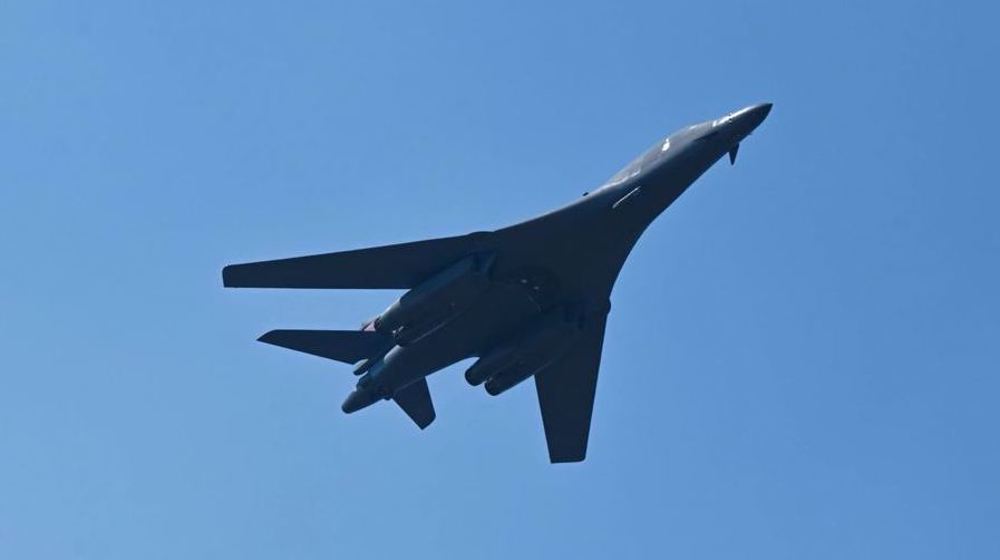
North Korea: US military provocations escalating under Trump
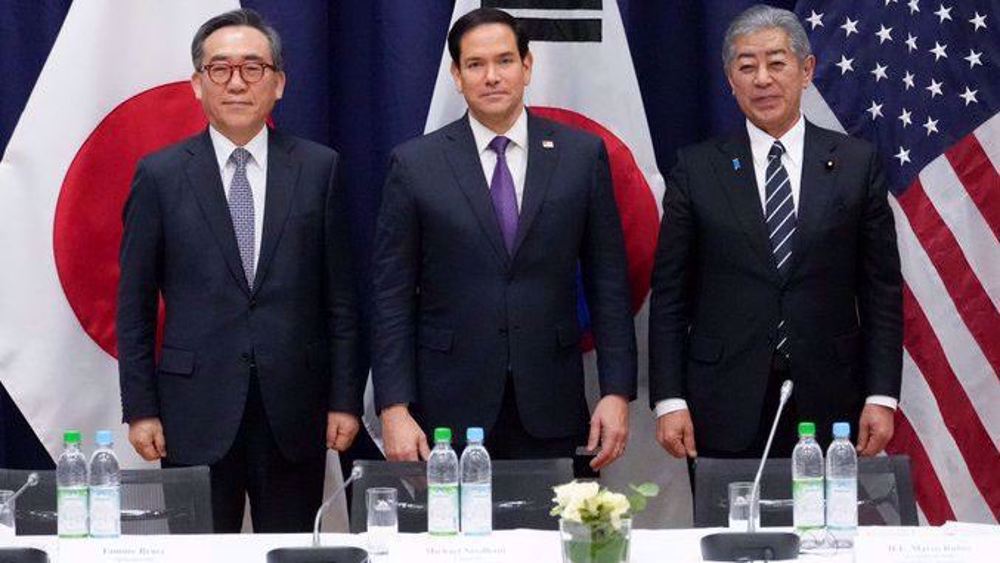
US, Japan, S Korea renew calls for ‘complete denuclearisation’ of North Korea
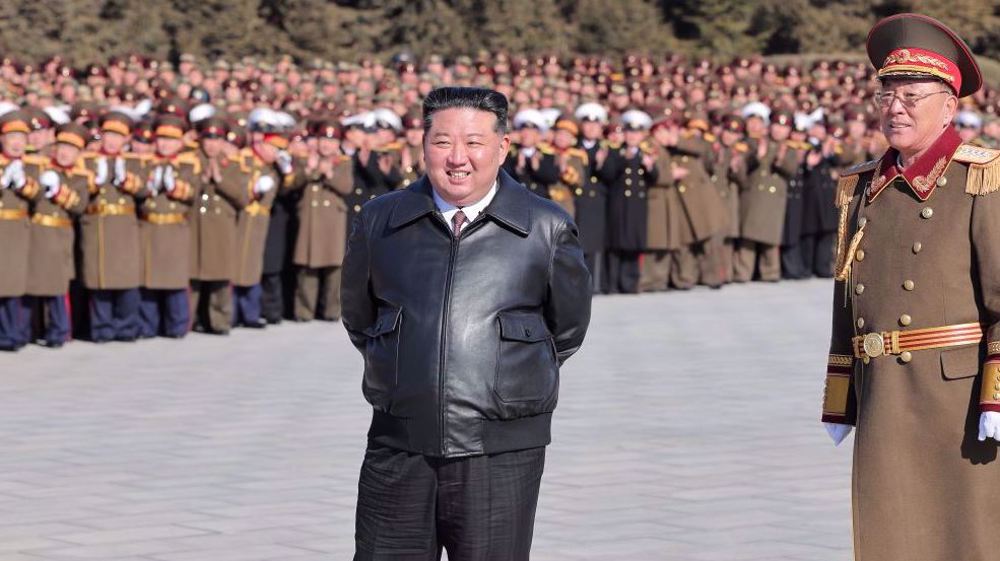
North Korea leader slams US for prolonging Ukraine war due to ‘wild ambition’
Israel’s massacres won’t grant it ‘legitimacy’: Hamas on 31st anniversary of Ibrahimi Mosque tragedy
French leader decries ‘unprecedented diplomatic scandal’ after Israel bars European MPs
VIDEO | Washington’s failed projects
VIDEO | Islamabad exhibition exposes Israeli atrocities in Gaza
Trump rescinds arms sales regulation in favor of Israel, sources say
Iran’s president vows to accelerate cooperation with Russia
Palestinian says Israeli jailers poured acid on him during interrogation
Iran, Turkmenistan seek increased cargo transit via railways


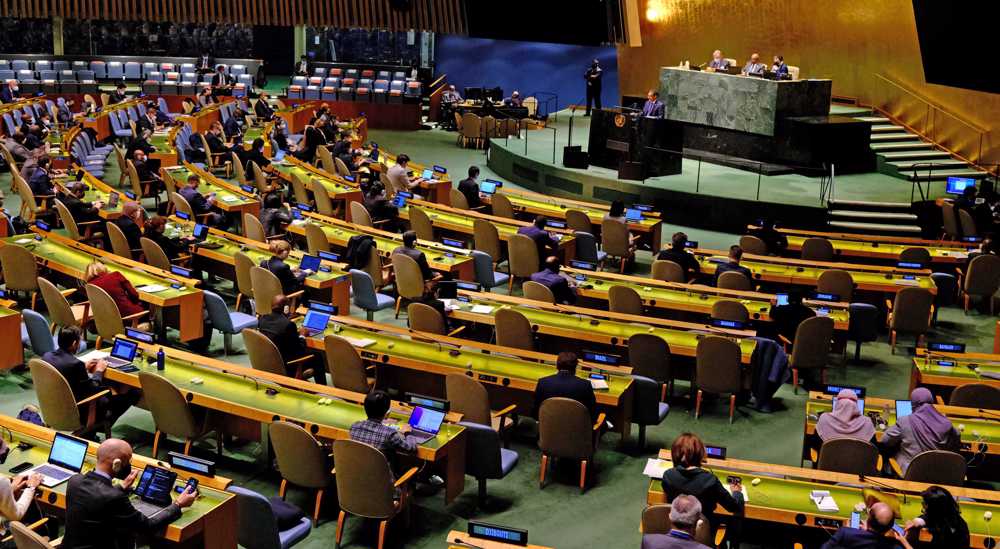
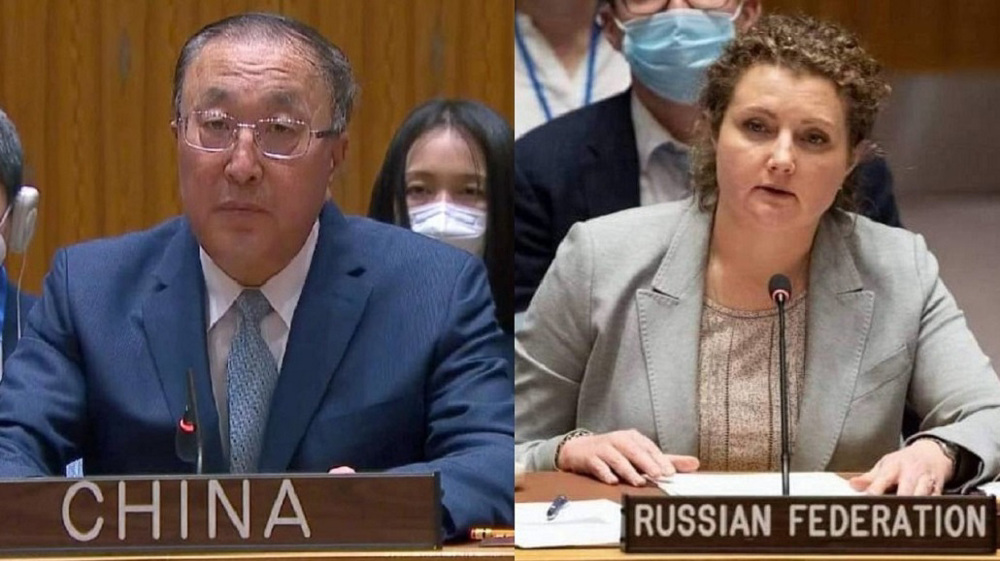
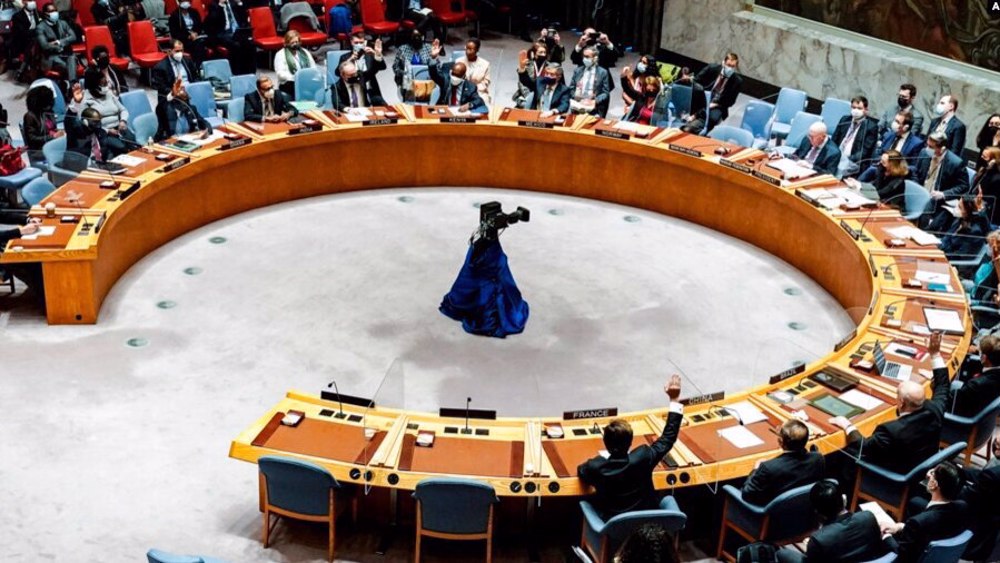




 This makes it easy to access the Press TV website
This makes it easy to access the Press TV website